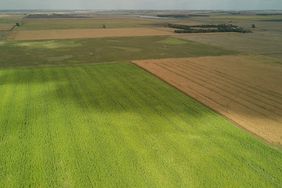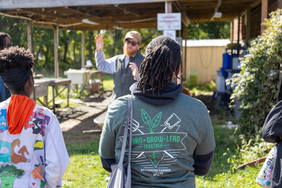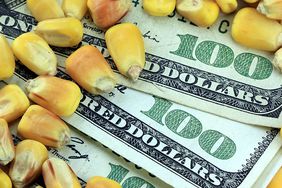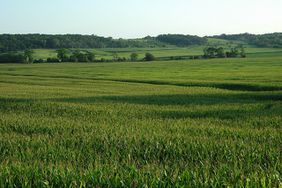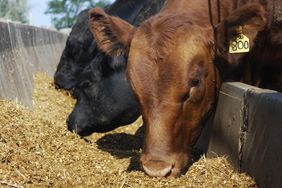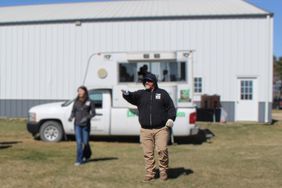:max_bytes(150000):strip_icc()/SmallStreamWithTree-WideShot-2000-ed6d8497db874729ade8874f2dd9e8f4.jpg)
While having lunch with a smart, successful farmland investor some years ago, I asked the question, "What do you do about all of the trees and waterways?" He said, "Simple, I don't own any." He came from a farming family and knew at an early age that trees and waterways cause extra work. I felt like a fool because I already owned many acres of ancillary woods, and they were causing me to work an unpaid part-time job.
I did eventually learn a way to make some extra money on those woods. It works pretty well if your property is occupied by wildlife. I'll call it "the hunting bonus." Now, it doesn't work for everyone because there are many farmers out in the world who like to hunt, and they reserve their woods for their own use. Still others have a bunch of family and friends to whom they generously grant free hunting rights. This is very serious business in a lot of rural areas with boundary disputes, legacy agreements, poachers, and arguments over who is allowed on the land and when.
When I started buying farms, I was flabbergasted by the number of people who trespass to hunt. Some people are bold, even setting up multiple deer stands on other people's property. In short order the path was clear to me – either lease my land to people who are supposed to be there, or have random strangers wandering around shooting up the place, maybe even getting hurt and suing me. Over the last decade, leasing out land to hunters has helped change my wooded acres from liabilities into assets.
If you are interested in generating some hunting income, here are some tips:
1. Figure out the desirability and market value of your land. Talk to hunters you know and poke around on Craigslist or other sites. Land that is suitable for hunting generally rents for between $15 and $50 an acre for exclusive hunting rights for the season. Note that those prices are for every acre, not just the wooded ones. So, a 50-acre parcel with 15 acres of trees may generate $1,500, which can be looked at as an extra $30 an acre for the whole farm or as $100 an acre for the previously unrented wooded acres. After all, without trees, there would be no hunting lease.
- READ MORE: How to build a wildlife habitat on your land
2. Consider using a hunting-land leasing company. There are a few big ones you can find quickly online with a search. They will take a portion of the rent, but they save you some time by finding the hunters, drafting the lease, obtaining insurance, and processing the payment. However, you can do those things yourself with a little effort.
3. Obtain liability insurance for the hunting party. They may fall out of their tree stands or shoot each other. These risks keep most uninsured farmers out of the hunt-lease business and rightly so. Protect yourself with at least $1 million or $2 million in coverage.
4. Specify in the lease exactly what the terms are, such as one year, exclusive rights to hunt all legal game, and payment due upon lease commencement. Address the maximum number of hunters allowed, ATV usage, food plots, and camping onsite.
- READ MORE: Earn income from hunters
5. Put an indemnity clause in the lease, which states that the hunters will not sue you over any kind of injuries they bring upon themselves. This is key. We may have insurance, but we don't want to use it.
6. Post the land with lease signs to warn everyone else to stay out.
7. Communicate with the hunters. Ask about trespassers, conditions, nosy neighbors, and most importantly, if they succeeded with their mission.
